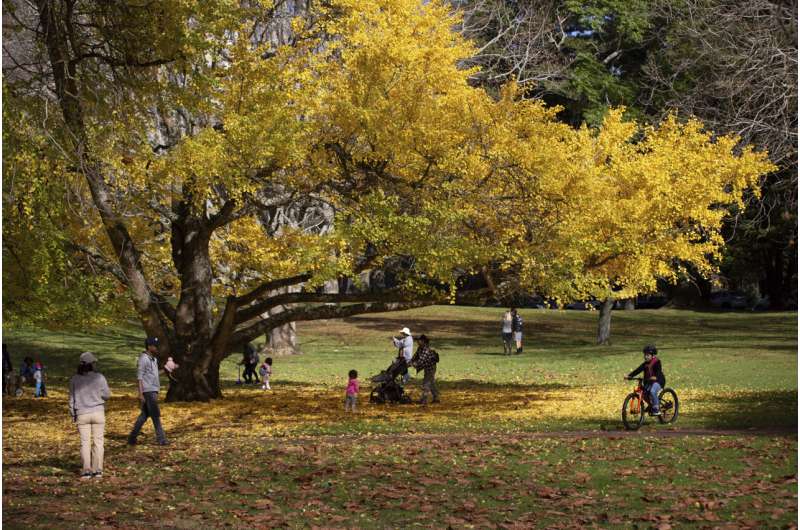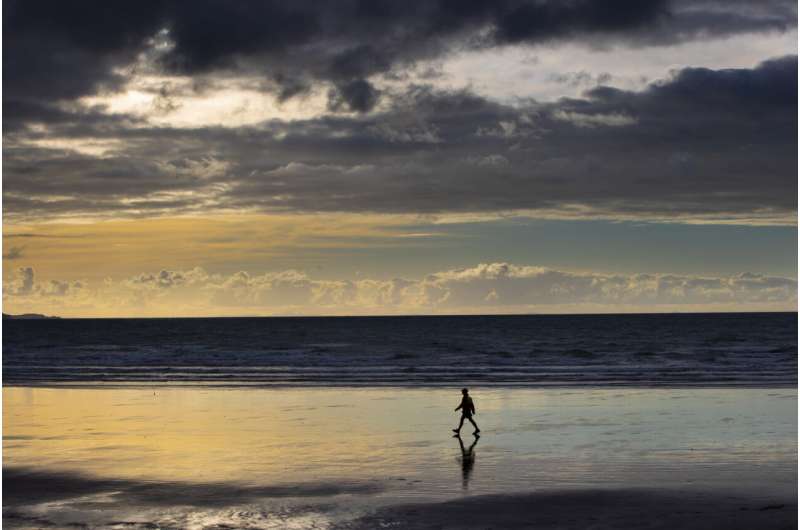New Zealand records warmest-ever June as ski fields struggle
New Zealand has recorded its warmest June since recordkeeping began, as ski fields struggle to open and experts predict shorter southern winters in the future.
A range of factors led to the record, including more winds coming from the milder north rather than the Antarctic south, and unusually warm ocean temperatures, said Gregor Macara, a climate scientist at the government-owned National Institute of Water and Atmospheric Research.
He said the vagaries of weather will change from month to month. "But the underlying trend is of increasing temperatures and overall warming," Macara said.
The average temperature in June was 10.6 degrees Celsius (51 Fahrenheit), the research agency reported Monday. That's 2 degrees C above the 30-year average for June and more than 0.3 C higher than the previous record set in 2003 and again in 2014. Recordkeeping began in 1909.
Macara said the average temperature in New Zealand had increased by about 1 C over the past century. He said that if the trend continues, people can expect later and milder winters, followed by earlier springs.
The situation is putting pressure on ski fields a week out from when many students take their winter school holidays. Snow cameras at several of the larger resorts show exposed rocks and earth sprinkled with a dusting of snow on many runs. Some fields have used snowmaking machines to open some runs while keeping other lifts closed.

Rachel Ashton plays with her pug, Frankie, on the summit of Mount Roskill as the sunsets on a crisp winter evening in Auckland, New Zealand, on June 23, 2021. New Zealand has recorded its warmest June since recordkeeping began, as ski fields struggle to open and experts predict shorter southern winters in the future. Credit: Jason Oxenham/New Zealand Herald via AP
Paul Anderson, the chief executive of NZSki, which operates Coronet Peak, Mt Hutt and The Remarkables ski fields, remained upbeat.
"We'd always like a bit more snow on the ground," he said. "But we've got some good snow arriving tomorrow, and then a cool four or five days for snowmaking."
Anderson said his company has been adapting to the changing conditions by investing in snowmaking equipment and lifts that can withstand high winds.
"It's really clear that climate change is a reality. You can't argue with that science," Anderson said. 'But it is over a very long period of time."
Some farmers have welcomed the milder weather.
"This year it has been a godsend," said Jim Galloway, the Hawke's Bay provincial president of advocacy group Federated Farmers.
He said that's because the warmer weather coupled with rain has finally allowed some grass to grow, providing feed for sheep and cattle. That follows two years of drought conditions in his region.

People enjoy a warm day under a gingko tree in Cornwall Park, Auckland, New Zealand, on June 12, 2021. New Zealand has recorded its warmest June since recordkeeping began, as ski fields struggle to open and experts predict shorter southern winters in the future. Credit: Sylvie Whinray/New Zealand Herald via AP
"It's helped a lot, but there's a long way to go," Galloway said. "There's not a lot of ground water. The dams are still empty, basically."
And Galloway said that while droughts are nothing new for farmers, he worries that a warming climate is making them happen more frequently.



Recommended Comments
There are no comments to display.
Join the conversation
You can post now and register later. If you have an account, sign in now to post with your account.
Note: Your post will require moderator approval before it will be visible.